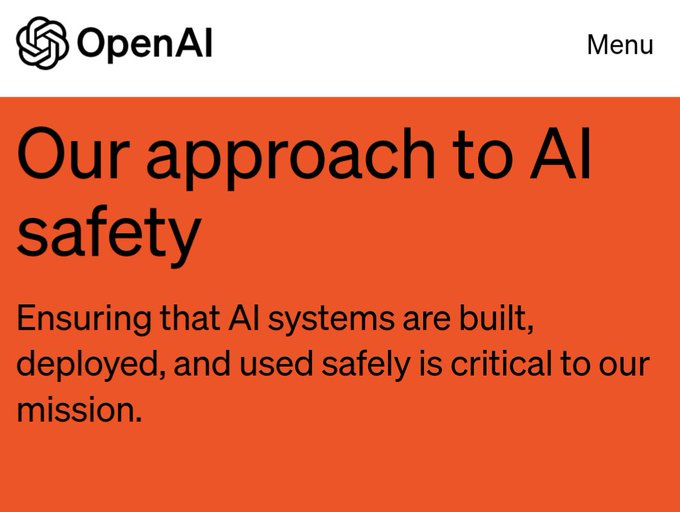Addressing risks, protecting privacy, and improving accuracy through research and real-world experience
OpenAI has been dedicated to building powerful AI systems that are not only safe but also provide broad benefits to people around the world. The organization understands that AI tools like ChatGPT come with risks and has been proactive in implementing safety measures at all levels of their systems.
Before releasing any new AI system, OpenAI conducts extensive testing, seeks external feedback, employs reinforcement learning with human feedback, and builds comprehensive safety and monitoring mechanisms. The latest model, GPT-4, underwent six months of safety improvements and alignment efforts prior to its public release.
Key points:
- Stringent safety assessments and regulations are essential for advanced AI systems
- Gaining insights from real-world applications is crucial for developing and launching secure AI systems
- AI technology development should involve input from the people it impacts
- AI tools can only be used by those aged 18 or older, or 13 and older with parental consent
- GPT-4 is 82% less likely to generate disallowed content than GPT-3.5
- Personal data is eliminated from training datasets whenever possible
- User feedback contributes to GPT-4’s factual accuracy, making it 40% more accurate than GPT-3.5
- Enhancing AI safety and capabilities should be pursued simultaneously
- As AI models become more advanced, their deployment will be approached with greater caution and improved safety measures
- Effective global governance is necessary for responsible AI development, requiring cooperation between policymakers and AI providers.
OpenAI recognizes the importance of learning from real-world use and iteratively deploying AI systems to gather valuable insights. This allows them to monitor misuse, improve AI behavior, and refine policies to reduce risks. One crucial aspect of their safety strategy is the protection of children, ensuring that AI tools are only accessible to those who meet age requirements and implementing strict guidelines to prevent harmful content generation.

Privacy is another key concern, and OpenAI is committed to removing personal information from their training datasets and addressing requests to delete personal information from their systems. They have also made significant strides in improving the factual accuracy of their AI models, with GPT-4 being 40% more likely to produce factual content compared to its predecessor.
As AI systems continue to evolve, OpenAI will remain vigilant in enhancing safety precautions and fostering collaboration and open dialogue among stakeholders. The organization acknowledges the need for effective global governance and institutional innovation to ensure responsible AI development and deployment, and is dedicated to contributing to this challenging but essential goal.
